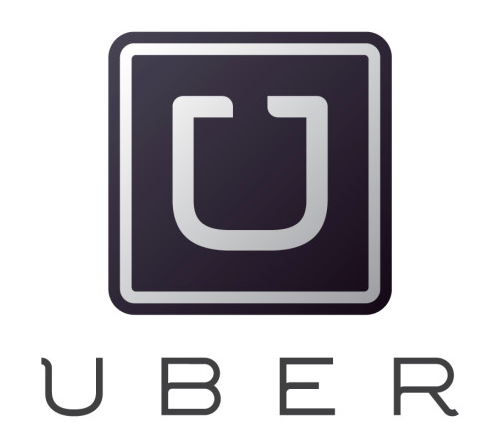Uber And Airbnb Worth More Than FedEx and Marriott? Is The World Coming To An End?

Uber and Airbnb are two of the most successful travel startups in recent memory. They’ve signed up tons of customers, opening up new markets on a ferocious pace. And, they keep raising cash to fuel that growth. But, are they really worth as much as they say they are? Let’s consider these two Wall Street Journal articles:
The $50 Billion Question: Can Uber Deliver?
The Secret Math of Airbnb’s $24 Billion Valuation
With Uber’s next fundraising round, they’ll be “selling” equity at a price roughly equivalent to the value of FedEx, a publicly held company:
Investors in Uber are enthusiastic about the potential, valuing the privately held company at $41 billion in its last funding round. Uber is in talks to raise a new funding round at a valuation of $50 billion or more, people familiar with the matter have said, roughly equal to FedEx Corp.’s stock-market value.
Then, there’s Airbnb’s next raise:
Within the month, Airbnb expects to close a $1 billion funding round at a $24 billion valuation, according to people familiar with the matter. It isn’t clear which investors are taking part in the newest round.
Marriott, which manages more than 4,000 hotels and last year had $13.8 billion in revenue, is valued at about $21 billion.
For those people who may not be familiar with the investing world, I’ll add some brief background here. Part of my day job is evaluating startup companies for potential investment. At one time, both Uber and Airbnb would have been companies my firm might have considered investing in. So, how do companies come up with these values?
The public valuations are easier to peg, since buyers can openly sell those stocks. While not a perfect science, a company that’s publicly traded is likely to have a truer “price”, such as the $50 billion price tag the article references for FedEx.
With a privately held company, you have to price in the risks of the investment, and they are many. For starters, since the shares are not publicly traded, it may be tough for you to sell them quickly (though Uber and Airbnb are both large enough to have secondary markets for trading).
Probably most importantly, it’s unclear if either Uber or Airbnb is actually profitable. It’s loosely reported that Uber had revenue of around $400 million last year, but that’s an estimate of their gross revenue. Here’s a quote from the Airbnb article about their revenue:
Airbnb representatives in recent months told prospective investors the startup expects $850 million in revenue this year, according to people who viewed the projections. That would be more than triple the recorded revenue of $250 million in 2013.
If we take Airbnb’s $850 million as 100% profit, that means a $24 billion valuation would impute a price of 28 times earnings. That’s pretty steep. And, you have to remember that the valuation is supposedly pricing in some risk the company could fail, where companies like FedEx and Marriott have a very small risk of failure.
Additionally, Marriott and FedEx have “moats” around their business to some degree. While Marriott has competitors in the hotel space, it’s unlikely there will be multiple large competitors dropping new hotels beside most of their properties. Similarly, FedEx isn’t likely to have a few groups step up and start building massive logistics networks to compete with them internationally. UPS may start kicking their butt, but they’re unlikely to have additional competitors they need to compete with on a large scale.
Both Uber and Airbnb still have that risk. Uber specifically has another large competitor in Lyft and tons of smaller competitors in other markets. If you don’t think Uber has risks, then you’re just not paying attention. It was just a couple of days ago when the California Labor Commission ruled that Uber drivers are employees, not contractors. This isn’t the federal government, or technically even the state of California making a ruling like this. But, were Uber’s drivers to be classified as employees instead of contractors, it could (likely would) have a massive impact on their business model.
What that says to me, combined with the other risks, is that the current valuations Uber and Airbnb are raising at assume the companies are actually worth more than these “prices”, as investors are likely pricing in some or all of this risk.
They have dominant market share, but very little in the way of physical assets. They still have execution risk and the likelihood that others will continue to enter the market and compete with them. Just recently, my Uber experiences in Hong Kong were substandard based on my previous experiences. Creating a global brand with networks in various countries is hard, that’s why you don’t see it done every day.
I don’t use Airbnb, but I’m certainly happy for the success of Uber.
But, you can continue to color me skeptical on the steady rise in valuation for these two juggernauts.
The post Uber And Airbnb Worth More Than FedEx and Marriott? Is The World Coming To An End? was published first on Pizza In Motion.
Don’t miss any of the daily travel tips, tricks and strategies found here. Follow me using one of these options:

I’d much rather use HomeAway or VRBO than ABB when I travel with my family or groups of friends. The properties are usually higher quality, I don’t have to share them with a “host” and don’t have to pay ABB’s 12% booking fees.
Eric, those are the type of things that can derail ABB. Other models that gain in popularity. I haven’t used any of them, but I can imagine it’s a lot easier for a competitor to arise for ABB than for Marriott.